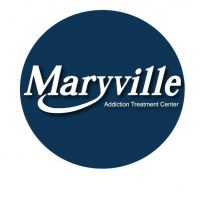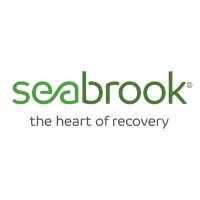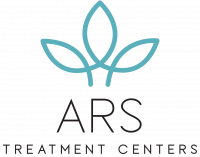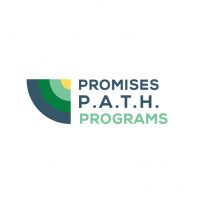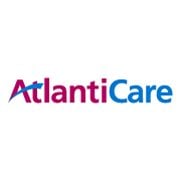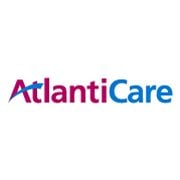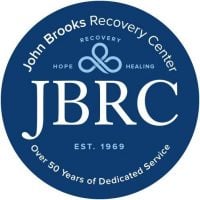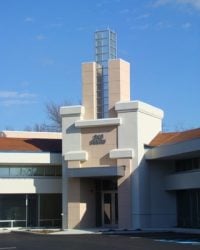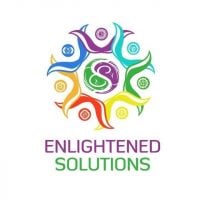Maryville - Atlantic County
Drug Rehab Center in Pemberton, New Jersey
Maryville Drug Rehab is an accredited addiction treatment facility in Pemberton, NJ providing various levels of care, such as aftercare support, drug rehab, intensive outpatient, outpatient, detox and dual-diagnosis, for people suffering from alcohol addiction, opioid addiction, substance abuse, dual diagnosis, drug addiction and mental health, and accepts private health insurance.
About Maryville - Atlantic County in New Jersey
Maryville - Atlantic County, located in Pemberton, New Jersey, is a reputable treatment facility specializing in comprehensive care for individuals struggling with addiction and mental health issues.
- Accredited by CARF and a member of NAATP, ensuring quality and professional standards.
- Offers a range of levels of care, including detox, outpatient treatment, intensive outpatient programs, and aftercare support.
- Provides a safe and supportive environment for individuals to detox from drugs or alcohol.
Maryville - Atlantic County is recognized for its dedication to helping individuals overcome addiction and achieve long-term recovery. They are committed to providing compassionate and experienced care throughout the treatment process.
The facility specializes in treating alcoholism, opioid addiction, substance abuse, dual diagnosis, drug addiction, and mental health issues. They offer a comprehensive approach to treatment, utilizing evidence-based therapies and individualized care plans to address each person's unique needs.
Genders
Ages
Modality
Additional
Accreditations
NAATP

CARF
The Commission on Accreditation of Rehabilitation Facilities (CARF) is a non-profit organization that specifically accredits rehab organizations. Founded in 1966, CARF's, mission is to help service providers like rehab facilities maintain high standards of care.
Conditions and Issues Treated
Substance abuse is the excessive use of any drug. This includes alcohol, medications, and illegal drugs. Substance abuse is treated with a combination of physical and mental treatments. Patients detox and follow up with therapies that target the underlying cause of the addiction. Substance abuse is a severe problem that can be successfully treated with a variety of therapies. Maryville - Atlantic County treatment uses a combination of therapies along with other resources to overcome substance abuse.
Opioid addiction treatment should be done in a medically supervised drug rehab. While taking opioids, users will typically use other substances to enhance the effects of opioids or to reduce the adverse effects of opioid use. Opioid addiction treatment will include detoxification and drug rehab counseling to help both the user and their loved ones learn how to live a successful sober lifestyle.
Treatments such as methadone, buprenorphine, and naltrexone are three medications that can help treat opioid addiction. These drugs work on the brain’s pleasure center and reduce cravings and the effects of illicit opioids such as heroin. These drugs can be either given orally or by injection. Individual drug rehab counseling sessions can be helpful to discuss any questions or concerns with the drug treatment program. This counseling will also help the user set goals for when they finish drug rehab.
Opioid addiction recovery is a long process. Many of the changes to the brain caused by opioid use cannot be undone, but with time and the proper treatment, a person can return to normal function. After detox, treatment will include drug rehab counseling and entering a halfway house or sober living community. Aftercare is critical to long-term recovery, as it helps the user avoid relapsing and entering back into drug rehab.
Levels of Care Offered
This center offers a variety of custom treatment tailored to individual recovery. Currently available are Aftercare Support, Detox, Drug Rehab, Dual-Diagnosis, Intensive Outpatient, Outpatient, with additional therapies available as listed below.
An addict may have to go through alcohol or drug withdrawal. While detox may be uncomfortable, it is not life-threatening. Detoxification allows the addict to rid the body of all traces of drugs or alcohol and gives the addict a clean slate for their recovery. In an inpatient or outpatient setting, detox can be managed medically.
Intensive outpatient treatment is a type of comprehensive addiction care. Unlike conventional residential treatment programs, the patients live at home during the recovery process. This means that one can continue working and caring for their families. These also allow people to keep pursuing their studies while also working on their sobriety.
Outpatient treatment can help one transition to normal life from the round-the-clock supervision and treatment available during inpatient treatment. It is an excellent tool to ensure long-term recovery. However, it is essential to note that intensive outpatient treatment in itself does not remove patients from the real-world setting. This means there’s always a higher risk of coming across environmental triggers. To further prevent relapse, an outpatient treatment center should be able to provide ongoing support services.
Once the patient is enrolled in an intensive outpatient treatment program, they will be expected to attend therapy and group meetings daily for a stipulated period. The frequency and duration of each session will depend on the patient’s needs and level of addiction. This can help curb the habit and deal with underlying issues that led to it. Most of these professional treatments are designed to allow patients to structure their daily schedules in a way that is conducive to recovery.
“Outpatient treatment is ideal for those who have a lower intensity addiction. It’s also suitable for those with a supportive environment and those on a tight budget.
Outpatient treatment can be considered the lowest intensity level of addiction treatment. It is ideal for early phase addiction or lower intensity addictions. It may involve weekly sessions instead of daily. Peer group support, 12-step programs, and individual counseling may still be used and anti-addiction medication.
Aftercare support is vital to those who have completed a drug or alcohol treatment program. This support comes in individual and family counseling, treatment of psychiatric and other medical conditions, and medications to reduce cravings. It helps recovering addicts adjust to normal day-to-day activities and can last for a year or longer.
The majority of drug and alcohol addicts who receive aftercare treatment do not relapse. It is estimated that without aftercare, the relapse rate will be between 70 to 90 percent for most people. Aftercare is the final stage in addiction recovery, but it will also help maintain sobriety if relapse does occur.
Therapies & Programs
No single treatment works for all addicts; therefore, the goal of treatment and therapy should be to find what works best for each individual. Some people requiring addiction treatment may only need a few weeks of inpatient care. Others will require long-term residential care. Tolerance and withdrawal levels vary from person to person and thus affect the intensity of the treatment needed.
If an individualized approach to treatment and therapy is not offered, addicts may fail to reap benefits from their efforts. Professionals must customize plans according to their patient’s needs, limitations, and strengths. The goal of all forms of addiction treatment should be for addicts to find healthy ways to cope with their addiction and its underlying causes.
Couples therapy for drug addiction is a unique form of therapy that allows family members to work through the emotional issues of their loved one’s addiction together. Family members can support each other while learning how to cope with the addiction and encourage healthy changes.
Accordingly, couples therapy for drug addiction is designed for an addict and their significant other or spouse. The two will work with a therapist to learn how the addiction affects themselves and the relationship and how to break the negative patterns of behavior that may have developed.
Drug addiction can destroy a person’s life, as well as their family and friends. The loss of one’s ability to choose how to live and behave often leads the addict into depression, anger, guilt, and many emotional problems.
The therapies usually include siblings, children, and parents who are involved in their daily lives. These sessions are vital because they address past issues that may have hampered an addict’s or alcoholic’s recovery and provide support at a crucial time!
One of the most critical aspects of family therapy is helping addicts’ loved ones see their situation in a new light. It’s also one of the most challenging things a family can do when a loved one struggles with addiction or alcoholism.
Group therapy is held in a safe, controlled setting where patients can feel comfortable sharing their struggles and gaining perspective through shared conversations. It takes place in a group rather than one on one to prevent feelings of isolation or being unique in their situation while creating an environment for addicts at Maryville - Atlantic County to develop fellowship, accountability, and support. Group therapy is an important tool in recovery that prevents cravings that prompt a return to active addiction.
This type of therapy involves the use of a variety of therapeutic techniques to help addicts recover from past traumas that might have triggered their substance abuse. During these sessions, therapists will work with the addict to address painful memories and learn how to cope effectively with stressors as they arise.
During these types of sessions, therapists will typically focus on three main goals:
- Identifying and expressing painful emotions associated with past traumas.
- Reducing the effects of stress on an addict’s life by developing more effective coping mechanisms.
- Developing healthy ways of thinking about stressful situations that can help addicts avoid substance abuse issues in the future.
This type of therapy is typically used in conjunction with other types of addiction treatment services. By identifying and dealing with the root cause of addiction, most addicts can overcome their cravings and prevent relapse once they leave rehab.
Many different types of addiction treatment services exist to help addicts safely get sober, but it’s important for recovering individuals to find a therapist or support group that will help them address the root cause of their addiction.
Dialectical Behavior Therapy is a form of Cognitive Behavioral Therapy that helps patients understand the relationship between their thoughts, feelings, and behaviors. It is beneficial for those whose addictions and behaviors stem from severe mental health issues. It aims to help the patient achieve their goals and identify how they can enhance their lives.
Cognitive-behavioral therapy is a talking-based method that helps people struggling with addiction replace destructive behaviors with healthier ones. CBT also helps them identify the underlying thoughts and beliefs that cause these behaviors in the first place and ways to control those thoughts and feelings. It can be administered as a holistic therapy or as part of combination therapy and—as opposed to turning to drugs and alcohol—helps addicts learn how to respond to negative thoughts instead.
Rational Emotional Behavior Therapy (REBT) is a type of CBT that uses images, thoughts, and behaviors to teach self-help skills to people recovering from addiction. It’s vital because it allows recovering addicts to work through their issues alone while having support available.
REBT is based on the idea that people have many irrational but habitual thought patterns that fuel harmful behaviors and feelings. Learning to identify destructive patterns in oneself can help one replace them with healthier ones.
12-step programs are one of the most common types of relapse prevention programs. They’re typically offered by private organizations like Alcoholics Anonymous, Narcotics Anonymous and Nicotine Anonymous.
During these meetings, addicts can learn about their addiction and work through it with others who are also struggling to overcome their addiction. These groups provide support that the addict might not be able to get from friends and family, and they can also prevent the addict from feeling isolated.
While self-help groups like these are effective for some addicts, others prefer services that provide more structure and support. For example, these programs might offer counseling sessions or even medical treatment with prescription medication.
Contingent rewards (rewards that are given based on behaviors like attending appointments or refraining from substance use) can be beneficial for people recovering from addiction.
When contingent rewards are used as part of medication management, it is often referred to as contingency management (CM). CM can help addicts in the following ways:
- Often used in combination with other therapies, such as cognitive behavioral therapy or contingency management
- Provides rewards to help addicts abstain from substance use or attend necessary appointments
- Encourages individuals to focus on abstinence instead of managing symptoms associated with addiction while receiving support and encouragement during recovery
- Can be particularly beneficial for people who are also dealing with co-occurring disorders like depression or anxiety, which addiction can trigger
- Decreases the severity and frequency of relapses during recovery.
Payment Options Accepted
For specific insurance or payment methods please contact us.
Is your insurance accepted?
Ask an expert, call (888) 674-0062
Additional Details
Specifics, location, and helpful extra information.
Pemberton, New Jersey 8225 Phone Number(855) 823-3428 Meta DetailsUpdated April 15, 2024
Staff Verified
Maryville - Atlantic County Patient Reviews
There are no reviews yet. Be the first one to write one.
Pemberton, New Jersey Addiction Information
The state of New Jersey is afflicted by the rising opioid overdose crisis and the increase in the number of residents engaging in illegal substance abuse. 90% of the 2,900 drug overdose deaths in New Jersey involved opioids in 2018. Over 1.1 million New Jersey residents reportedly use drugs in a given year. High prevalence of drug and alcohol abuse caused 14% of all deaths in the state between 2008 and 2017.
31 overdose deaths in Pemberton, New Jersey between 2015 and 2018. In 2017 alone, there were 11 overdoses in the town. The town has one of the highest rates of HIV infection in the state. This is likely due to needle sharing among intravenous drug users. 28% of addicts in Pemberton started using drugs before they turned 18. Some of the most common treatments include inpatient rehabilitation, outpatient treatment, and support groups.
Treatment in Nearby Cities
- Berlin, NJ (35.2 mi.)
- Marlton, NJ (40.9 mi.)
- Merchantville, NJ (47.9 mi.)
- Dumont, NJ (112.7 mi.)
- Englishtown, NJ (65.1 mi.)
Centers near Maryville - Atlantic County
The facility name, logo and brand are the property and registered trademarks of Maryville - Atlantic County, and are being used for identification and informational purposes only. Use of these names, logos and brands shall not imply endorsement. RehabNow.org is not affiliated with or sponsored by Maryville - Atlantic County.
